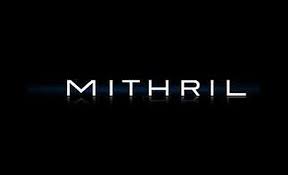Happy last day of April, everyone!
—–
Top News in the A.M.
FCC chairman Tom Wheeler will launch a campaign today to defend his controversial net neutrality proposal, arguing that his critics are wrong and there’s no reason (wink) for Internet providers to cheer the proposal.
—–
In Supreme Court Rulings, Startups Win
Yesterday, the Supreme Court made life a lot better for venture-backed startups, whether they know it yet or not.
In a case called Octane, the justices ruled 9-0 that the U.S. Circuit Court for the Federal Circuit — where every patent appeal in the country eventually winds up — had imposed overly restrictive standards for companies looking to recoup legal fees in cases brought against them by patent holders.
In a second, related case, Highmark, the justices also limited the ability of an appeals court to overturn a lower court judge’s decision in such cases.
To learn more, StrictlyVC talked last night with intellectual property attorney Rudy Telscher, who argued on behalf of the petitioners in the Octane case.
First, congratulations. Was this your first time, arguing a case before the Supreme Court?
It was. I’ve been there a couple of times on unrelated matters, but it was my first time to argue, and it was a pretty amazing experience, from walking into the courtroom to opening [the] case in front of the justices to handling their barrage of very smart questions. I’m lucky to have been able to argue such an important issue before them.
What part of the experience was most surprising?
Well, a protester stood up during my rebuttal and was removed by Secret Service. That was a surprise. [Laughs.] I handle of lot of appellate arguments, but the experience was very different in that you have nine justices coming at you from different angles. You’re facing the brightest legal minds in the country, and you know that as one is asking a question, the others are thinking up eight more. Some [of their questions], I hadn’t thought up [during my preparation], but when you handle a case for eight years, you have a good sense of the law.
Wow, eight years. For those just tuning in to the case, can you explain its importance, particularly to VCs and the founders they back?
An entrepreneur or smaller company builds a successful product and a larger competitor wants to come after them . . . And even though the larger competitor’s position is weak, it’s expensive to fight. [These suits] used to be an occasional thing, but now small and large companies alike are getting hit by patent trolls that buy up broadly worded patents from the ‘90s that have nothing to do with what’s going on today. And they call these companies and say, “It will cost you $2 million to $3 million to defend yourself. You might as well pay us $500,000 to settle.”
Now there will be more companies that stand up to these claims, because their odds of getting [repaid for their] their attorneys’ fees are pretty good.
How much has your client, Octane Fitness, spent on attorneys’ fees? And will those fees now be fully reimbursed by the opposing side?
They’ve spent $2.5 million, which might sound like a large sum but is probably about $3 million less than the national average. Now, the case goes back down to district court.
Is there any chance you’ll be ruled against there?
There are no guarantees, but I’d like to think the odds of that are low. The Supreme Court altered the standard a lot, saying it was rigid and very difficult to meet. It’s a big deal.

New Fundings
Atlas Genetics, a nine-year-old, Bath, England-based company that develops diagnostics tests for infectious diseases, has raised $28.4 million from investors, including Novartis Venture Funds, Consort Medical, Life Sciences Partners, BB Biotech Ventures, Johnson & Johnson Development Corp. and YFM Equity Partners.
Apigee, a 10-year-old, Palo Alto, Ca.-based predictive analytics company, has raised $60 million in fresh funding led by new investors Pine River Capital Management and Wellington Management Company. Earlier investors Norwest Venture Partners, Bay Partners,Third Point, SAP Ventures, BlackRock, Focus Ventures, andAccenture also participated in the round. Apigee has raised $171 million to date. The WSJ has much more on the company here.
Aviso, a two-year-old, Mountain View, Ca.-based company whose cloud-based tools aim to help companies provide more accurate earnings forecasts, has raised $8 million in Series A funding from Shasta Ventures, First Round Capital, Cowboy Ventures, Bloomberg Beta, WebEx founder Subrah Iyar, Informix founder Roger Sippl and other individual investors.
Bouju, a two-year-old, L.A.-based maker of “enterprise brand protection software” designed to help companies protect their intellectual property, has raised an undisclosed amount of funding led by Amidi Group.
BrightWhistle, a four-year-old, Atlanta, Ga.-based company that uses social media to help hospitals reach patients, has raised an undisclosed amount of new funding from its earlier investors, including Eastside Partners, Hamilton Ventures, Atlanta angel investor Paul Iaffaldano and other new angel investors.
CommercialTribe, a year-old, Denver-based company whose cloud-based social learning platform aims to help train sales representatives, has raised $3.2 million in Series A funding from Boulder Ventures, Access Venture Partners, Grotech Ventures, and Martha Tracey of Crawley Ventures.
Ecologic Brands, a 5.5-year-old, Oakland, Ca.-based maker of sustainable packaging, including bottles made of recycled cardboard and old newspapers, has raised a $7 million round from DBL Investors,Catamount Ventures, Black Bear Partners and Kruger, which manufactures other paper products.
Integrated Diagnostics, a five-year-old, Seattle-based molecular diagnostics firm, has raised $30.3 million in Series B funding led by Baird Capital, with participation from earlier investors InterWest Partners and the Wellcome Trust. The company also raised $17 million in debt financing from Life Sciences Alternative Funding. The company has raised $89.1 million altogether, shows Crunchbase.
MovieLaLa, a 1.5-year-old, San Francisco-based social network that helps movie fans discover upcoming movies through their friends, has raised an undisclosed amount of money from Salesforce CEO Marc Benioff, bringing the company’s total funding to date to $750,000. Others of MovieLaLa’s individual investors include Larry Braitman, a founding investor in Flixster, and Wealthfront CEO Adam Nash.
Ozon Holdings, the 16-year-old, Moscow-based parent company of Russia’s leading e-commerce company Ozon Group, has sold a roughly 20 percent stake in its business to two companies — Sistema, a publicly traded diversified holding company in Russia, and CIS and Mobile TeleSystems, a Russian telecommunications company — for $150 million. Meanwhile, the private equity firm Baring Vostok Private Equity Fund remains Ozon’s single-largest shareholder.
Pepperdata, a two-year-old, Sunnyvale, Ca.-based company whose software runs on existing Hadoop clusters to give operators more predictability, capacity, and visibility for their Hadoop jobs, has raised $5 million in Series A funding from Signia Venture Partners and Webb Investment Network.
Scientific Revenue, a 14-month-old, Redwood City, Ca.-based software company that aims to help game developers and publishers increase revenue by improving the yield of paying customers, has raised a first round of $2.5 million led by Walden Venture Capital. A syndicate of strategic investors also participated in the round, says CEO Bill Grosso, the former CTO of Live Gamer, an in-game payment infrastructure company.
Sols, a year-old, New York-based 3D printing company focused on custom-made shoe insoles that help with foot pain, has raised $6.4 million in Series A funding led by earlier investor Lux Capital. New investor Founders Fund also participated, along with earlier investors RRE, Rothenberg Ventures, Felicis Ventures, FundersGuild, and Grape Arbor VC. Sols has raised $8.15 million to date.
Sprinklr, a 4.5-year-old, New York-based maker of social media management software, has raised $40 million in Series D funding led by Iconiq Capital, with participation from Battery Ventures and Intel Capital. The company has raised $77.5 million to date, shows Crunchbase.
Tealium, a six-year-old, San Diego-based company whose tag management system helps its customers collect information from Web surfers, has raised $20 million in funding from Silver Lake. To date, the company has raised $47 million, including from Tenaya Capital, Battery Ventures, and Presidio Ventures.
TeleSign, a nine-year-old, L.A.-based company that provides authentication services for companies needing to verify the identities of their users, has raised $40 million in Series B funding led by Adams Street Partners. Other participants in the round included March Capital Partners and earlier investor Summit Partners.
Tidemark, a five-year-old, Redwood City, Ca.-based business-intelligence service, has raised $32 million in funding from Silicon Valley Bank, along with earlier investors Greylock Partners, Andreessen Horowitz, Redpoint Ventures, and Tenaya Capital. Tidemark has raised $80 million altogether.
Understory, a two-year-old, Boston-based weather data and analytics startup, has raised a seed round of $1.9 million led by True Ventures. Other participants in the round included RRE Ventures, Vegas Tech Fund, SK Ventures and angel investor Andrew Payne. Understory has created devices that collect data directly at the Earth’s surface. Xconomy has more here.
Vorstack, a three-year-old, Los Altos Hills, Ca.-based cyber-security company, has raised $5.2 million from individual investors, EMC Ventures, and earlier Vorstack investor Aligned Partners.
—–
New Funds
Sandeep Murthy, a general partner at Sherpalo Ventures, the 14-year-old investment firm of superstar investor Ram Shriram, is apparently parting ways with him — at least, geographically. Murthy, who has long managed Sherpalo Ventures’s India investments, is launching two funds of his own. The first, Lightbox Ventures I, has already backed six startups. A second fund, Lightbox Ventures II, will look to invest up to $90 million fund in early-stage, India-based startups. Shriram, meanwhile, will focus primarily on U.S. investments for now. TechCrunch has much more on the story here.
—–
IPOs
GlobeImmune, a 19-year-old, Louisville, Co.-based company that develops infectious disease and cancer therapies called Tarmogens, has set the estimated terms for its IPO, saying it expects to sell 2.2 million shares at a price between $15 and $17 each. The company has raised at least $45 million over the years, shows Crunchbase. Its biggest shareholders include Celgene Corporation, HealthCare Ventures, Morgenthaler Partners, Wexford-Kappa Investors, Sequel Limited Partnership, and Lilly Ventures Fund.
For those trying to keep track: 90 IPOs have priced so far in 2014 (as of last night). Of them, says IPOScoop, 51 issuers are trading up, and 39 have seen their shares sink below their offering prices. The total return from the issue price (on average) is 9 percent. The Nadaq’s year-to-date change, meanwhile, is -1.75 percent.
—–
Exits
Audience Media, a three-year-old, Barcelona-based company whose software aims to help publishers monetize their content, has been acquired by Zinio, a San Francisco-based company that makes a digital newsstand and magazine app. Terms of the deal were not disclosed. Zinio has raised at least $27 million to date.
ConnectEdu, a 12-year-old, Boston-based education technology company, has filed for Chapter 11 bankruptcy protection. The filing lists ConnectEdu’s assets at between $1 million and $10 million against liabilities of between $10 million and $50 million. ConnectEdu had raised roughly $28 million over the years, including from the Bill & Melinda Gates Foundation; North Atlantic Capital; and Allen & Company.
InkTank, a two-year-old, San Francisco-based maker of open-source storage systems, has been acquired by the open source software company Red Hat for $175 million in cash. InkTank had raised $14.4 million from New Dream Networks, owners of the cloud hosting company DreamHost, and Mark Shuttleworth, founder of the computer software company Canonical. TechCrunch has more here.
IPierian, a 6.5-year-old, South San Francisco-based drug discovery platform for neurodegenerative diseases like Alzheimer’s, has been acquired for up to $750 in cash by Bristol-Myers Squibb. The company had raised $74.2 million from investors over the years, including Google Ventures, SR One, Biogen Idec, Mitsubishi UFJ Capital, Highland Capital Partners, Atel Ventures, MPM Capital, and Kleiner Perkins Caufield & Byers.
Omnilink Systems, an 11-year-old, Alpharetta, Ga.-based offender monitoring company that tracks people and assets for judicial and commercial customers, has been acquired by Numerex Corp. for $37.5 million in cash. Omnilink had raised $12.2 million from investors, including from Grotech Ventures.
—–
People
Jeff Crowe of Norwest Venture Partners on the best advice he has ever received: “‘Don’t give up. Never give up.’ When I started my company, I can remember early on that we missed our objectives the first year, and it was pretty demoralizing. My board was great at saying, ‘Don’t give up,’ and we eventually started doubling our revenue every year thereafter.”
George Kellerman, a partner at 500 Startups, is leaving the organization to join former colleague Paul Singh, who left 500 Startups last year. Singh has since been raising $50 million for his new, Arlington, Va.-based venture firm, Disruption Corporation. “George is a Valley native, but I think he sees the opportunity that I do,” says Singh, talking about the so-called Series A gap. Indeed, Singh’s fund, called Crystal Tech Fund, targets tech companies in the post-seed space, as do a small but growing group of other firms, including Venture51, Capital Partners (the new fund of Ronny Conway), and Bullpen Capital. Singh says he has already made six investments through Crystal Tech, including in WeWork, a four-year-old, New York-based collaborative community platform that connects small businesses.
Early Twitter investor Chris Sacca took to, yes, Twitter yesterday to skewer Wall Street investors who dumped the company’s shares following first-quarter earning results that showed decelerating growth in active users. (The stock was down more than 10 percent yesterday in after-hours trading, notes Fortune.) Tweeted Sacca, “Dear Wall St: you had the same tired questions about Twitter stock when I was buying it at $4b. Let’s revisit this in a couple years. Cool?”
—–
Job Listings
LinkedIn has posted a new listing for a senior manager of corporate development.
And for our PR readers: Uber is looking for a head of corporate communications.
—–
Data
The end of the Facebook monopoly (c/o Benedict Evans).
—–
Essential Reads
Glam Media has done a big fat pivot into streaming video, renaming itselfMode Media in the process. VentureBeat has more here.
The surprising compensation trends of startup executives.
In case you’d missed this: Wired’s Steven Levy delves into the science behind your Facebook and Twitter feeds.
—–
Detours
This guy walked around Tokyo backwards; here is what the footage looks like played in reverse.
The fastest animal in the world is no longer the cheetah.
—–
Bear Paw Meat Handler Forks for pork pulling. (Look, you never know.)
—–
To sign up for StrictlyVC, click here. To advertise, click here.
 Ted Driscoll of Claremont Creek Ventures has been embroiled in the world of digital healthcare a lot longer than most of his industry peers. Before becoming a VC nine years ago, Driscoll, who has a PhD in digital imaging from Stanford, spent decades as a founder and executive at five diagnostics and imaging companies. Maybe it’s no wonder then that Driscoll has strong opinions about where investors who are newer to the digital health scene should be focusing their attention.
Ted Driscoll of Claremont Creek Ventures has been embroiled in the world of digital healthcare a lot longer than most of his industry peers. Before becoming a VC nine years ago, Driscoll, who has a PhD in digital imaging from Stanford, spent decades as a founder and executive at five diagnostics and imaging companies. Maybe it’s no wonder then that Driscoll has strong opinions about where investors who are newer to the digital health scene should be focusing their attention.





